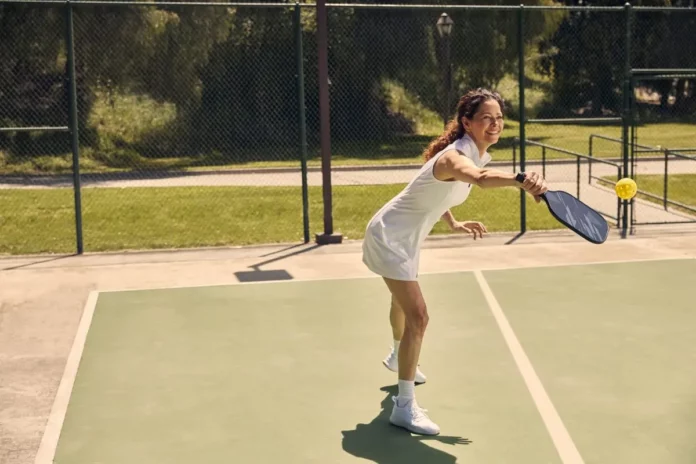Essential Recovery Tips for Pickleball Players: After finishing another intense session of pickleball, many players may find themselves feeling more drained than revived. Managing this exhaustion is crucial for maintaining energy levels and avoiding burnout. This guide offers insights on effective recovery strategies while ensuring that the enjoyment of the game remains intact.
Understanding Post-Game Fatigue
The fatigue experienced after playing pickleball stems from various factors, not solely the physical demands of the game. As individuals age, their mitochondria—the powerhouses of their cells—begin to lose efficiency.
These essential cellular engines are responsible for energy during play and recovery afterward. When mitochondrial function declines, players may feel sluggish and worn out.
Fortunately, several pickleball strategies can enhance recovery and even boost mitochondrial health, preparing players for their next match.
Key Pickleball Strategies for Recovery
1. Importance of Hydration and Electrolytes
Dehydration is a primary reason behind fatigue after intense pickleball matches. The sport’s high intensity causes sweat glands to work overtime, and water alone is insufficient; electrolytes are necessary to replenish lost fluids.
Tip: Players should begin hydrating even before stepping onto the court. Sipping water during matches is crucial, but incorporating electrolytes is equally important. Beverages like coconut water, sports drinks, NUUN tablets, or Native Hydrate can effectively maintain electrolyte balance.
2. Nutrition: Fueling the Body Right
The body functions like a vehicle that requires the right fuel to operate optimally. For pickleball players, proper nutrition before, during, and after the game is essential.
- Pre-Game: High-energy carbohydrates are vital for muscle fuel. Snacks like a banana with peanut butter or a slice of toast with honey serve as excellent options.
- During the Game: A small snack containing carbohydrates and electrolytes can help sustain energy levels, particularly during longer sessions.
- Post-Game: Protein is essential for muscle repair. A smoothie with protein powder or a meal featuring lean meat or beans can significantly aid recovery.
Note: Players should also refer to articles that explore the best foods to help recover after playing pickleball.
3. The Role of Stretching Before and After Play
Warm muscles lead to better performance and recovery. Entering a match with tight, cold muscles increases the risk of injury and heightens fatigue afterward.
- Warm-Up Routine: Engaging in dynamic stretches—such as jumping jacks, high knees, and arm circles—helps increase blood flow and prepares joints and muscles for the rapid movements required in pickleball.
- Cool Down: After playing, dedicating time to stretch all major muscle groups—particularly the legs, shoulders, and back—can help prevent stiffness and reduce soreness.
4. Prioritizing Quality Sleep
Recovery occurs not only on the court but also during sleep. The body repairs muscles, clears waste, and prepares for the next day while resting. Players should aim for 7-9 hours of quality sleep, especially on days they play.
Tip: Establishing a consistent sleep schedule and creating a restful environment can enhance the quality of sleep.
5. Active Recovery on Off Days
Recovery extends beyond the immediate aftermath of a match. On rest days, maintaining a level of activity at lower intensity is beneficial. Engaging in activities like walking, swimming, or yoga helps keep muscles loose without excessive strain.
Massage and Foam Rolling: Using tools like foam rollers or massage guns can significantly alleviate muscle tension. Professional players often utilize devices like the Theragun or Roll Recovery R8+ Massager for muscle relief before and after matches.
6. Practical Tips for Endurance During Play
- Pace Appropriately: Players should avoid treating every point as a championship match. Learning to pace oneself and understanding when to exert full effort versus conserving energy is key.
- Recognize When to Rest: Listening to the body is essential. Signs of overheating or exhaustion warrant taking a break, as pushing through fatigue can lead to more significant issues down the line.
Enhancing Mitochondrial Health for Recovery
For those eager to elevate their recovery, focusing on mitochondrial health may offer a significant advantage. Products such as Mitopure/Urolithin A have shown potential in improving mitochondrial function, thereby enhancing overall energy levels and reducing fatigue.
While this supplementation may not be necessary for everyone, it can be particularly beneficial for players who notice a decline in energy recovery.
Recovery: A Vital Component of the Game
Pickleball is an incredible sport that fosters activity, social engagement, and competition. To continue enjoying the game for years to come, prioritizing recovery is just as vital as playing.
Hydration, nutrition, stretching, and sufficient rest are not mere options; they are essential components of a pickleball player’s toolkit.
By taking care of their bodies before, during, and after play, players will find themselves with the energy to dive for shots, sprint to the net, and keep returning for more.
News in Brief: Essential Recovery Tips for Pickleball Players
Managing exhaustion after playing pickleball is essential for maintaining energy levels and preventing burnout. Pickleball recovery strategies include proper hydration with electrolytes, nutritional fuel before and after games, stretching routines, quality sleep, and active recovery on off days. Additionally, understanding mitochondrial health can enhance energy levels. By prioritizing recovery, players can continue enjoying the sport for years to come.
ALSO READ: Pickleball’s Unexpected Safety Risk Revealed, Avoiding Accidents on the Pickleball Court

